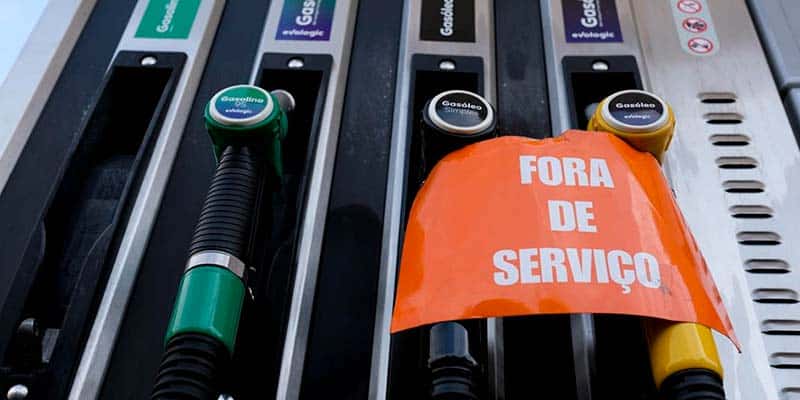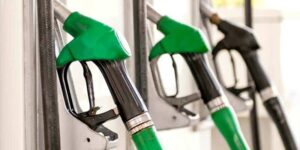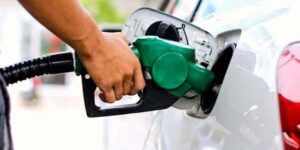With the country at its peak tourist period, we are just 11 days away from a truckers strike, starting on August 12 with no set end date, that has vowed to stop Portugal in its tracks. No less than three syndicates – involving thousands of drivers – are on board, with any chance of last-minute ’save the day’ negotiations seemingly out of the question.
Economy minister Pedro Siza Vieira went on television on Tuesday to appeal to ‘the Portuguese to avoid unnecessary journeys and exercise moderation in consumption’.
But as businesses and hoteliers rail, this looming fracas is not about ‘the Portuguese’. It is about the many hundreds of thousands of foreign tourists who have chosen Portugal for holidays that now look certain to be horribly conditioned.
AHRESP, the association of Portuguese hoteliers, predicts the strike will cause “irreparable damage” to the sector at an absolutely crucial time.
Giving a run-down on the looming reality, Jornal Económico stresses that truckers’ action will not only see fuel stations running out of petrol and diesel (as happened before Easter), but supermarkets running out of food.
“Meat, fish, vegetables and fruit are essential products that could start disappearing from shelves in the first 24-hours. Not even the textile or civil construction sector will escape”, the online paper warned.
In the Algarve, NERA – the business association – has demanded that ‘minimum services’ already established by the government be increased.
For now, the almost 5000 sq km region is to be served from August 12 by only 22 fuel stations (see below for details).
NERA stresses that tourists arriving here for a ‘happy holiday in the sun’ will not want to stay “locked in their hotels.
“They will want to travel across the region. They will need the guarantee of fuel” every bit as much as the “hundreds of thousands of Portuguese” who also choose the Algarve for their annual holidays.
“The advice to avoid unnecessary journeys does not suit these tourists”, NERA insists.
Turismo do Algarve is just as adamant. President João Fernandes is calling for “positive discrimination” for a region that depends on tourism like almost no other on the country’s mainland.
Talking to journalists this week, Fernandes explained that the minute truckers announced their intention to strike, his organisation sent the government a clear list of minimum requirements.
It involved the participation of “various sub-sectors within tourism, from rent-a-car companies to firms offering touristic animation, hotels, restaurants, distributors – everything that works within the HORECA chain which supplies hotels and restaurants” (HORECA stands for Hotels, Restaurants and Cafés).
The list was designed to highlight the “concrete necessities of each activity” – the hope being that the Algarve would be given special treatment.
Instead, the number of fuel stations ‘guaranteed’ is lower than almost every major region in the country.
As NERA stresses: “The businesspeople of the Algarve do not understand”.
Thus, with combined calls for “more positive discrimination,” Portugal braces for a strike in an election year that threatens to put the country in one of the worst international spotlights imaginable: a prestige holiday destination calling on people to stay put for their holidays, and consume frugally.
Meantime, the government has said it is preparing to use the military to drive delivery trucks if necessary – while reports on Tuesday claimed farmers “fear disaster and bankruptcies”.
As we went to press on Wednesday, truckers unions were requesting a meeting with the government, though no dates appeared to have been set.
What is this strike about?
This is the conundrum. The power behind the unrest is the SNMMP syndicate of drivers of dangerous materials which brought the country to the brink of collapse just before Easter and has already secured some of its demands.
The sticking points centre on staggered base-salary increases that bosses association ANTRAM has not yet accepted.
Drivers want assurances of €700 in January 2020, €800 in January 2021 and €900 in January 2022 (with supplements, monthly wages for drivers would roughly double base totals).
ANTRAM however has only guaranteed the increase for 2020.
As Pedro Siza Vieira has explained, it’s “difficult to see” why the strike is being called in the busiest month of the summer calendar, other than to cause maximum national disruption.
Indeed he says the government will be ‘reviewing’ the 1970 law on strike action, to see whether or not it should be altered.
Algarve fuel stations (so far) guaranteed by government’s minimum services
■ Albufeira: Repsol (Sítio Bolota) and Intermarché (Vale Serves Ferreiras)
■ Aljezur: Galp (Bombeiros)
■ Faro: Jumbo (Av. Cidade Hayward); Cepsa (Faro Airport) and Galp (Patacão).
■ Lagoa: Jumbo (EN 125)
■ Lagos: Intermarché (Ameijeira Verde) and Galp (EN 120).
■ Loulé: BP (Av. Ceuta) and Galp (A22).
■ Olhão: EN 125 Bracanes
■ Portimão: Jumbo (EN 125) and Galp (Av V6).
■ Silves: Galp (EN 125), Galp (EN 124) and Intermarché (Rua João de Deus).
■ Tavira: Cepsa (EN397 near Cachopo), Galp (EN125, near São Pedro) and Prio (Rua Almirante Cândido dos Reis)
■ VRSA: Intermarché (Largo de Estação).
The total (22) is the least number compared to stations guaranteed for the districts of Lisbon (48), Porto (41), Setúbal (28), Aveiro and Leiria (both with 23).
By NATASHA DONN
natasha.donn@algarveresident.com


















